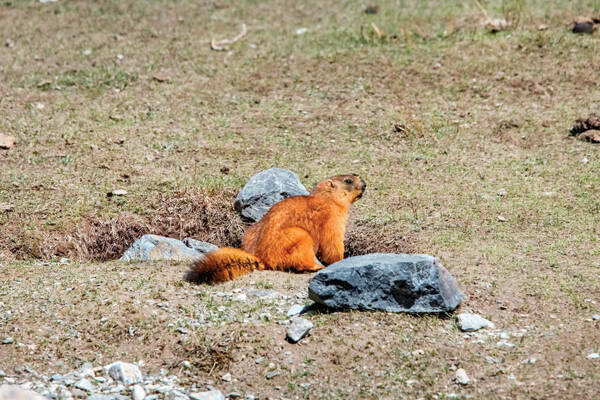
Marmota caudata
Marmota caudata,Long-tailed Marmot,Red marmot, Marmot
The long-tailed marmot is a large terrestrial rodent of the Sciuridae family···
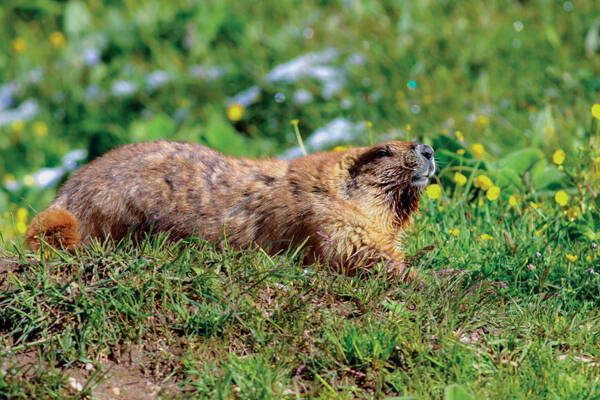
Marmota baibacina
Marmota baibacina,Altai Marmot,Tianshan marmot, Altai marmot
The gray marmot (scientific name: Marmota baibacina), also known as the Tian···
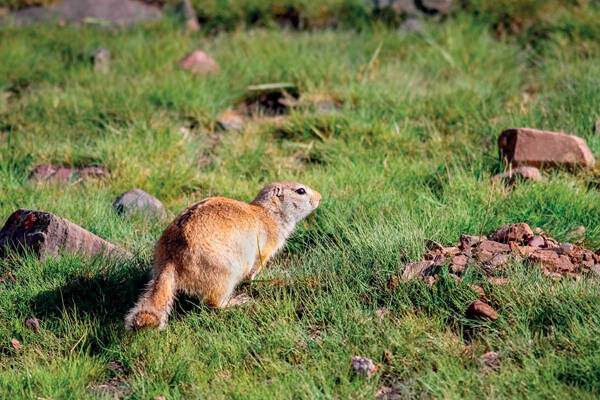
Spermophilus relictus
Spermophilus relictus,Tien Shan Ground Squirrel,Yellow rat
The Tianshan yellow squirrel is of medium size and has a long tail. It mainl···
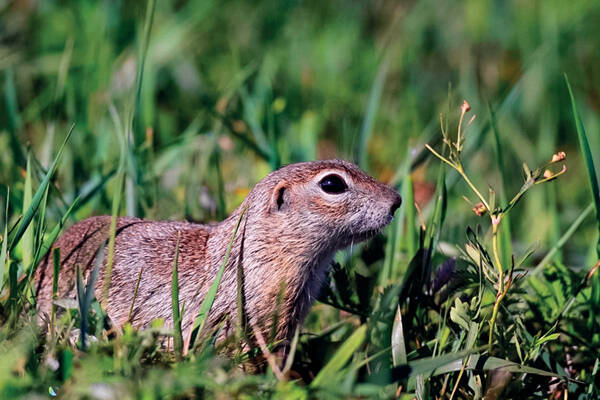
Spermophilus dauricus
Spermophilus dauricus,Yellow mouse, Mongolian yellow mouse, prairie yellow mouse, bean mouse, big-eyed thief
Daurian ground squirrel is a group of scattered animals, diurnal, one of the···
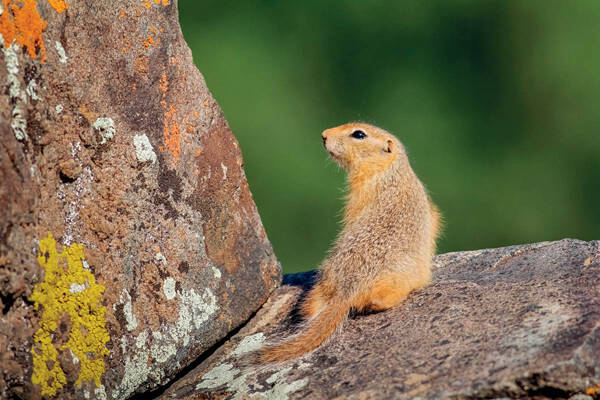
Spermophilus undulatus
Spermophilus undulatus,Long-tailed Ground Squirrel,Bean rat, big-eyed thief
The long-tailed yellow squirrel is an animal of the Sciuridae family and the···
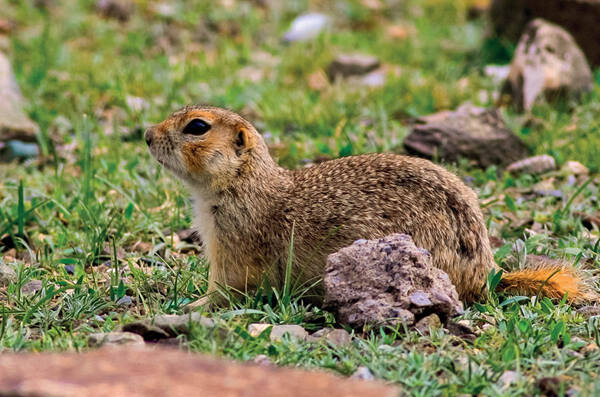
Spermophilus erythrogenys
Spermophilus erythrogenys,Red-cheeked Ground Squirrel,Pale-tailed yellow squirrel
Red-cheeked yellow squirrel is an animal of the Sciuridae family and the gen···
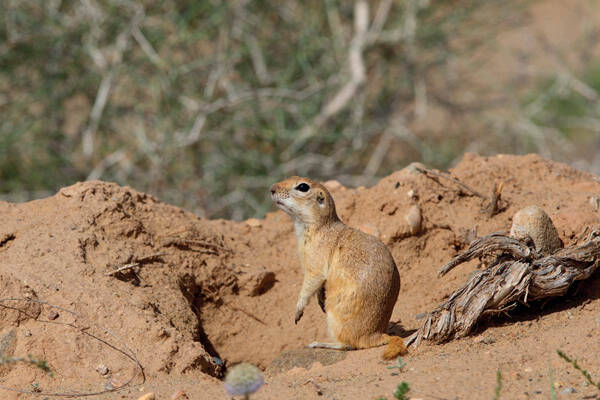
Spermophilus alaschanicus Buchner
Spermophilus alaschanicus Buchner, field mouse, Daurian ground mouse, Mongolian ground mouse, prairie ground mouse, big-eyed thief, bean mouse
The Alashan yellow rat was originally listed as a subspecies of the Daurian ···
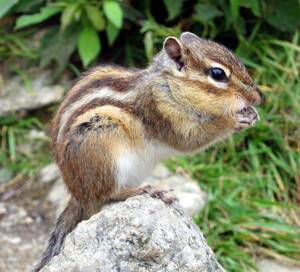
Tamias sibiricus
Tamias sibiricus, birch mouse, five-browed squirrel, flower civet stick, chipmunk
Chipmunks belong to the genus Chipmunk of the family Sciuridae. They are nam···
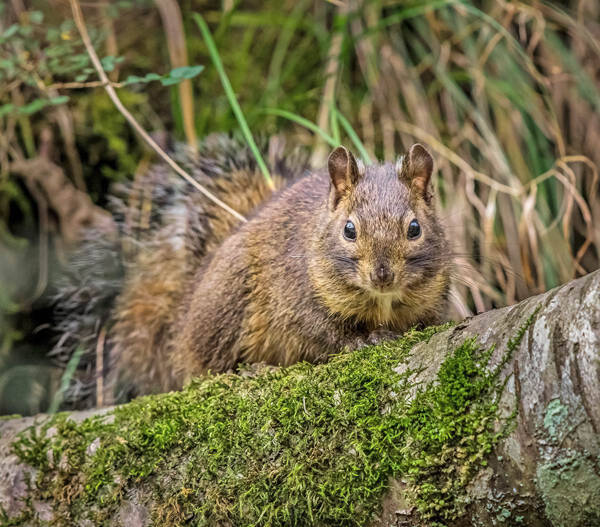
Sciurotamias davidianus
Sciurotamias davidianus,David’s rock squirrel,Sweeper, Stone Rat
Rock squirrels belong to the family Sciuridae in the order Rodentia and are ···
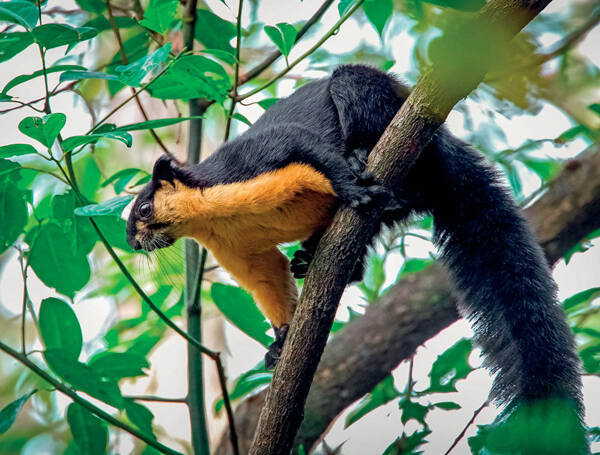
Ratufa bicolor
Ratufa bicolor(Sparrman, 1778),Black Great Squirrel,Tree dog, black civet, vine civet, black civet, black giant squirrel or Malayan giant squirrel
Giant squirrels are large rodents that live in high trees in tropical and su···
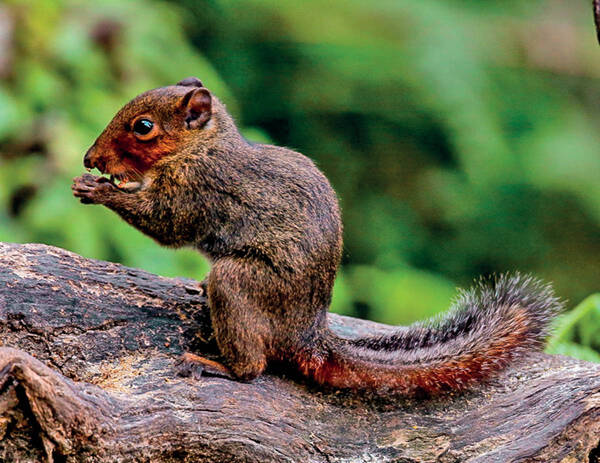
Dremomys rufigenis
Dremomys rufigenis,,Asian Red-cheeked Squirre,l Red-cheeked squirrel, Red-cheeked long-nosed squirrel
The red-cheeked long-nosed squirrel (scientific name: Dremomys rufigenis) is···
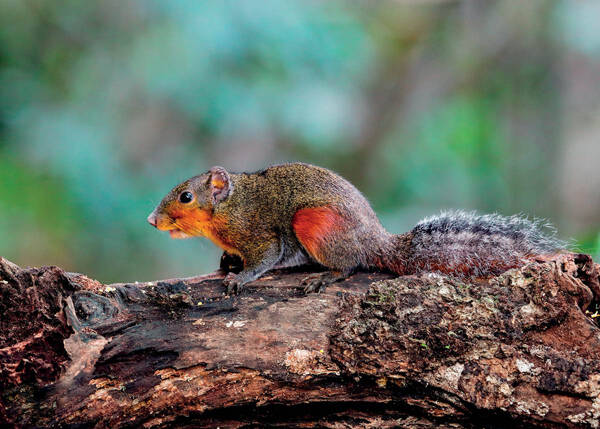
Dremomys pyrrhomerus
Dremomys pyrrhomerus,Thomas, 1895
The red-legged long-nosed squirrel (scientific name: Dremomys pyrrhomerus) i···
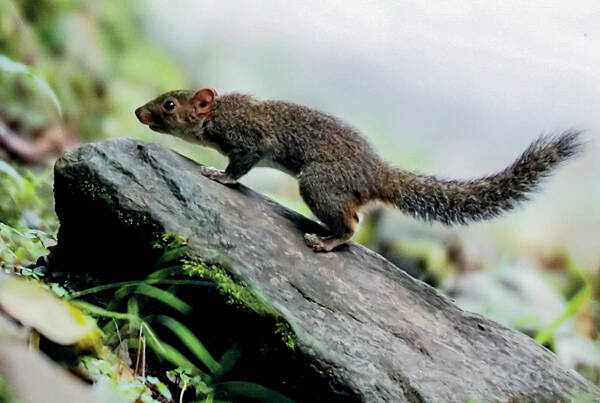
Dremomys pernyi
Dremomys pernyi,Perny's Long-nosed Squirrel,Long-nosed squirrel, squirrel, hairy mouse
Pernyi's long-nosed squirrel (scientific name: Dremomys pernyi) is an an···
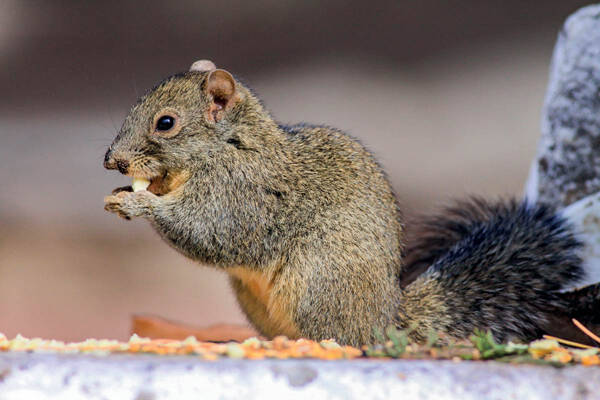
Dremomys lokriah
Dremomys lokriah,Himalayan orange-bellied long-nosed squirrel, Tibetan long-nosed squirrel
The orange-bellied long-nosed squirrel (scientific name: Dremomys lokriah) b···
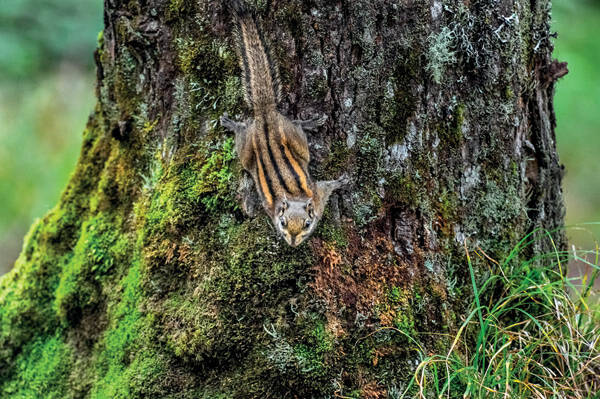
Tamiops swinhoei
Tamiops swinhoei,Hidden flower squirrel, yellow-bellied flower squirrel, leopard mouse, chipmunk, golden chipmunk, three-browed squirrel, Diao Lingzi, etc.
The chipmunk, also known as the chipmunk, yellow-bellied chipmunk, and leopa···
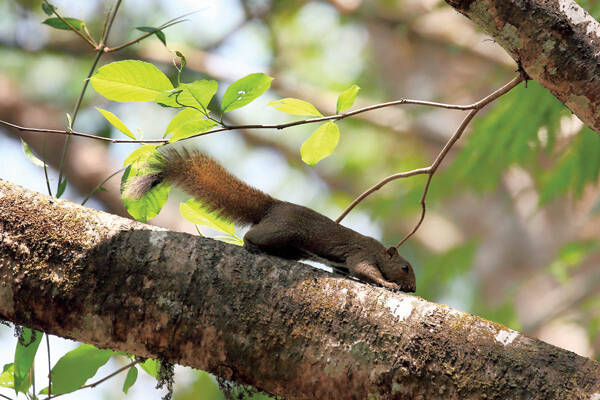
Callosciurus quinquestriatus
Callosciurus quinquestriatus,,Five-striped squirrel
The striped squirrel, also known as the five-striped squirrel, is an endange···
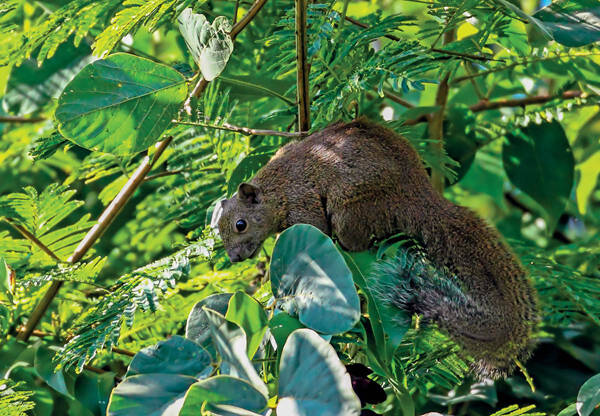
Callosciurus pygerythrus imitator
Callosciurus pygerythrus imitator,Irrawaddy squirrel, Yunnan squirrel
Blue-bellied squirrels are distributed in southwestern China, including sout···
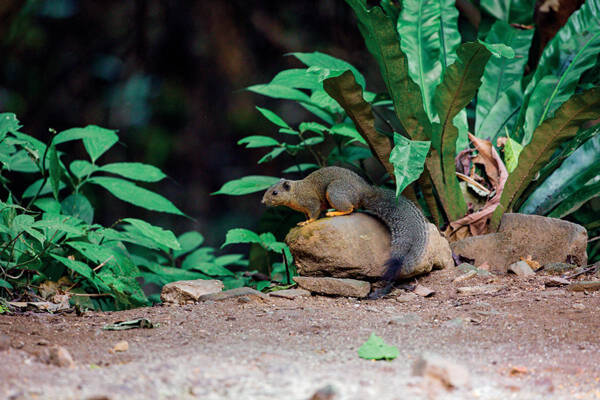
Callosciurus phayrei
Callosciurus phayrei,Phayre”s Squirrel,Yellew-handed Squirrel,Yellow-footed squirrel, yellow-bellied squirrel, yellow squirrel, Philippine squirrel
The yellow-handed squirrel is also called the yellow-footed squirrel, yellow···
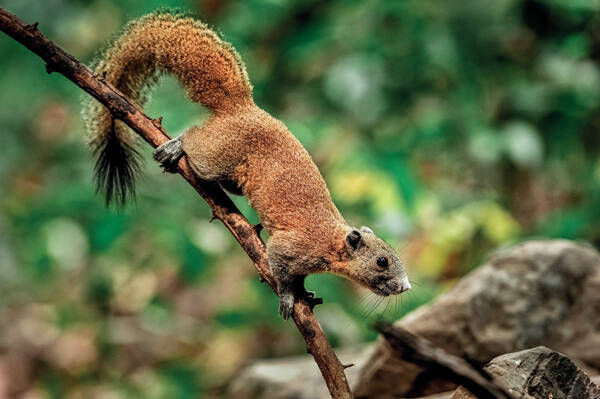
Callosciurus erythraeus
Callosciurus erythraeus,Red-bellied squirrel, flying squirrel, dart mouse
Red-bellied squirrels, also known as red-bellied squirrels, are arboreal ani···
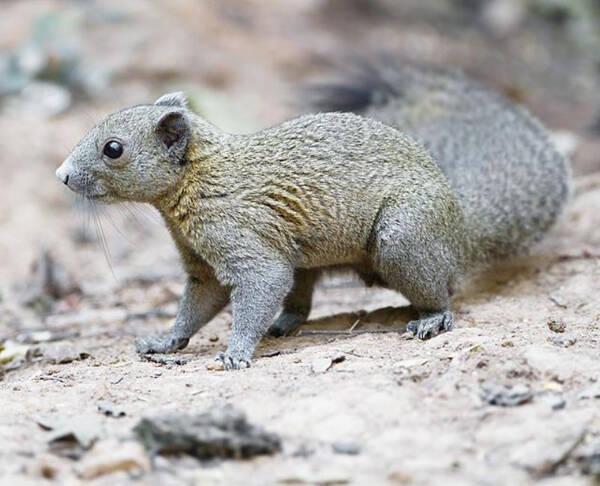
Callosciurus caniceps
Callosciurus caniceps,Tamiops sauteri,Sciurus thaiwanensis,Sciurus caniceps
The golden-backed squirrel (scientific name: Callosciurus caniceps) is an an···
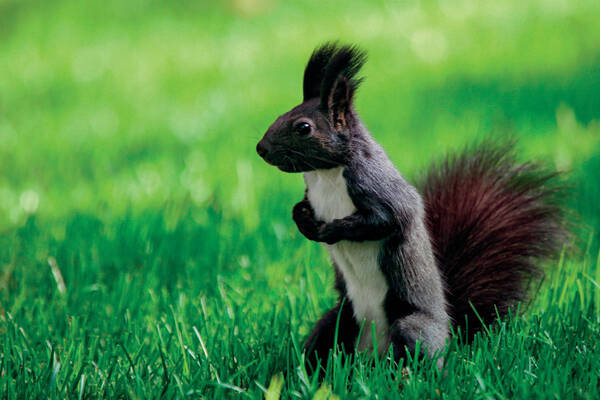
Sciurus vulgaris
Sciurus vulgaris,Squirrel, Tree Rat
Northern squirrels mainly live in temperate and subarctic coniferous forests···
